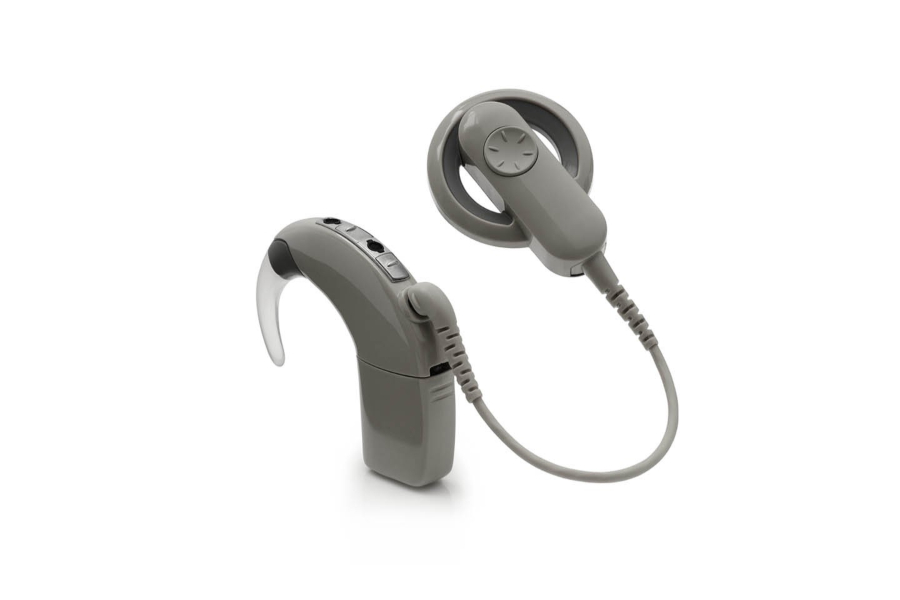
Cochlear implant is an electronic device that helps in hearing for deaf people or who have severe hearing loss due to inner-ear damage. It does not restore the hearing to normal, but gives a sense of sound in the surrounding and help in understanding speech. The cochlear implant collects the sound signals, goes around the damaged portion of the ear and delivers the sound signals to the hearing nerve (auditory nerve).
Overview
It consists of two portions, internal (surgically placed under the skin) and external (sits behind the ear). It has the following parts:
- Microphone: It picks up the sound from the surroundings
- Speech processor: It arranges and selects the sound that is collected by the microphone
- Transmitter and stimulator/receiver: It receives the sound from the speech processor and converts them into electric impulses
- Electrode array: A group of electrodes transfers the impulses from the stimulator to different regions of the auditory nerve.
Use of cochlear implant
- Cochlear implants are effective in improving the ability:
- To predict the direction of the sound
- To hear speech without visual clues or lip-reads
- To hear everyday environmental sounds like footsteps, a phone ringing, or door closing
- To receive a telephone call
- To hear music
ELIGIBILITY
Any adult or child who is deaf or has severe hearing loss and is not benefited from hearing aids can have a cochlear implant. The person should also fulfill the following criteria to undergo a cochlear implant:
- Absence of medical conditions or factors that increases the risk associated with the cochlear implant
- Ready to participate in rehabilitation sessions
- Understand the process properly including its limitations
PREPARATION BEFORE PROCEDURE
A complete medical examination is done before the procedure to evaluate if the patient is fit for the procedure. Different tests may be performed to evaluate the following:
- Hearing, speech and balance
- Health and structure of the inner ear
- Condition of the cochlear
- Mental status
As the procedure is done under the effect of general anaesthesia, the patient should avoid eating or drinking anything atleast 8-12 hours before the procedure. Certain supplements or medications may be stopped before the procedure.
ABOUT PROCEDURE
Under the effect of general anaesthesia, an incision is made behind the ear. A slight depression in the mastoid (the portion of skull bone) is formed in which the internal devices rests. An opening is created between the facial nerves to expose the cochlea (a part of the inner ear that plays a crucial role in hearing). Then a small hole is created in the cochlea, and the electrode array of the internal device is implanted into the cochlea through this hole. A receiver (electronic device) is placed under the skin, behind the ear. The incision is then stitched to secure the internal device under the skin. It can be done in a single ear or both the ears at the same time.
POST-PROCEDURE CARE
Mostly, the patient gets discharged on the same day of the surgery.
Before leaving the hospital, instructions will be given on how to take care of the incision and change the dressings. Medications may be given to manage the pain (if any).
The patient can wash the ears normally after two days of the procedure. After around one week, the patient needs to revisit the hospital for removing the stitches.
After 4-6 weeks, the external parts containing a microphone and speech processor will be added. At the same time, the speech processor is programmed and activated. Then, in response to the sound, the internal device stimulates the cochlear nerve.
The patient will be instructed about how to use and take care of the implant. The process of learning how to use cochlear is slow and may take time. Consultation with audiologists and speech-language pathologists is also required.
RECOVERY TIPS
Following measures may aid in improving the hearing sense by cochlear implant:
- Do side-by-side tracking with a partner
- Read and listen to audiobooks
- Listen with more concentration


 Best Hospitals
Best Hospitals












